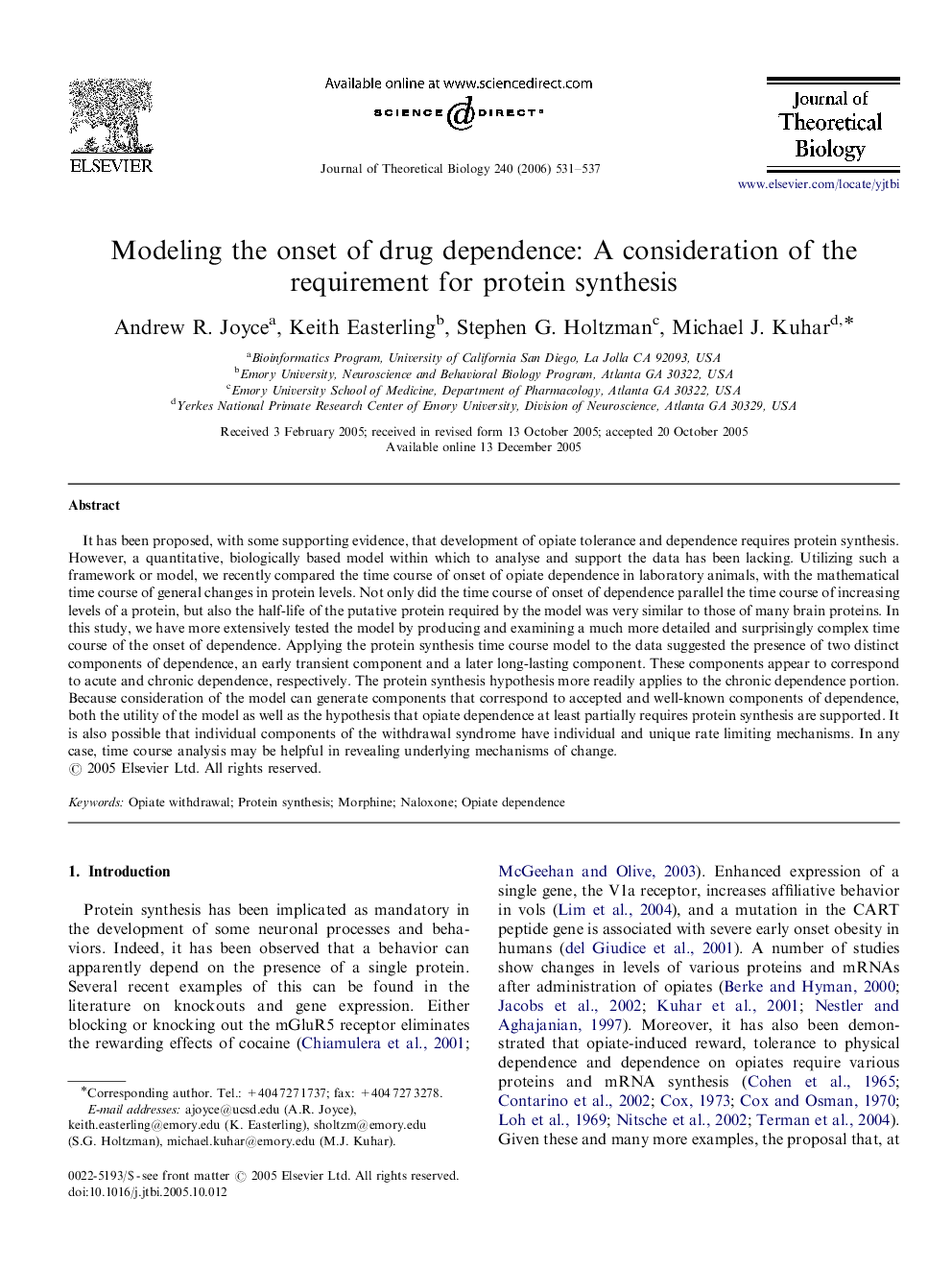| Article ID | Journal | Published Year | Pages | File Type |
|---|---|---|---|---|
| 4499544 | Journal of Theoretical Biology | 2006 | 7 Pages |
Abstract
It has been proposed, with some supporting evidence, that development of opiate tolerance and dependence requires protein synthesis. However, a quantitative, biologically based model within which to analyse and support the data has been lacking. Utilizing such a framework or model, we recently compared the time course of onset of opiate dependence in laboratory animals, with the mathematical time course of general changes in protein levels. Not only did the time course of onset of dependence parallel the time course of increasing levels of a protein, but also the half-life of the putative protein required by the model was very similar to those of many brain proteins. In this study, we have more extensively tested the model by producing and examining a much more detailed and surprisingly complex time course of the onset of dependence. Applying the protein synthesis time course model to the data suggested the presence of two distinct components of dependence, an early transient component and a later long-lasting component. These components appear to correspond to acute and chronic dependence, respectively. The protein synthesis hypothesis more readily applies to the chronic dependence portion. Because consideration of the model can generate components that correspond to accepted and well-known components of dependence, both the utility of the model as well as the hypothesis that opiate dependence at least partially requires protein synthesis are supported. It is also possible that individual components of the withdrawal syndrome have individual and unique rate limiting mechanisms. In any case, time course analysis may be helpful in revealing underlying mechanisms of change.
Related Topics
Life Sciences
Agricultural and Biological Sciences
Agricultural and Biological Sciences (General)
Authors
Andrew R. Joyce, Keith Easterling, Stephen G. Holtzman, Michael J. Kuhar,
